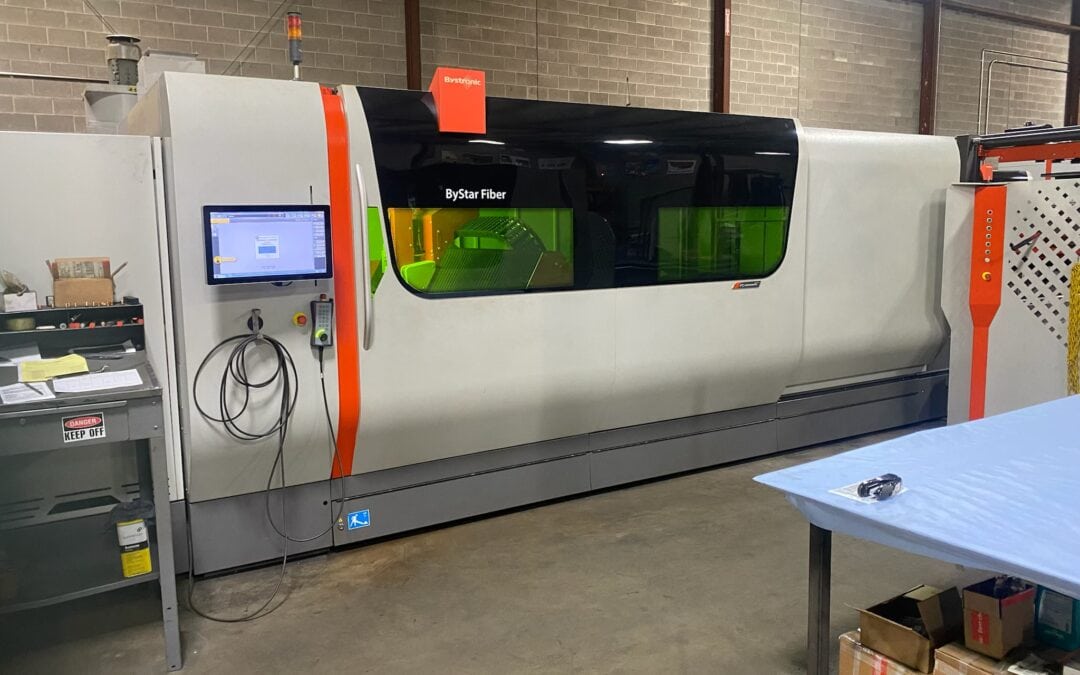Navigating Your Purchase: Essential Questions for Choosing Industrial Laser Cutting Equipment
The world of industrial lasers is a dynamic and technologically advanced realm, offering a wide range of applications, from cutting and engraving to welding and marking. With options like CO2 lasers, fiber lasers, and tube lasers, it’s crucial to ask the right questions before purchasing an industrial laser. In this blog post, we’ll delve into the most important questions you need to consider when selecting the right laser technology and equipment for your application.
What Are My Application Requirements?
The first step is to define your application needs. Are you looking for cutting, engraving, marking, or welding capabilities? Different laser technologies excel in specific applications. For instance, CO2 lasers are great for engraving and cutting non-metallic materials, while fiber lasers are preferred for metal cutting due to their high power and speed.
What Material Will I Be Working With?
The type of material you intend to work with (metals, plastics, ceramics, etc.) influences the choice of laser wavelength and power output (wattage). Different materials may require specific laser types for optimal results.
CO2 Lasers or Fiber Lasers: Which is Suitable for My Needs?
CO2 lasers and fiber lasers are two popular options in the industrial laser world. CO2 lasers are versatile and well-suited for non-metallic materials, while fiber lasers are highly efficient for metal cutting. Determine which technology aligns with your applications.
Do I Need Tube Laser Cutting Capability?
For industries dealing with tubes and profiles, tube lasers are essential. When purchasing tube laser equipment, explore details including the maximum tube size and capacity, cutting accuracy and speed, automation features and software capabilities fto find a system that suits your production needs.
Engraving Matters: What About Laser Engraver Machines?
Laser engraving is a precise and versatile process used in various industries. If engraving is a key requirement, explore laser engraver machine features such as the maximum engraving area, types of materials that can be engraved, included attachments and what software is included to ensure the chosen equipment offers the engraving capabilities you need.
How Powerful Should My Laser Be?
Laser power (wattage) is a critical consideration. Depending on the materials and thicknesses you’ll be working with, determine the appropriate power level. Fiber lasers are known for their high power output, making them ideal for thick metal cutting.
What Precision and Accuracy Can I Expect?
Precision matters in industrial laser applications. Ask about the accuracy and repeatability of the equipment you’re considering. Fiber lasers, for instance, offer exceptional precision for intricate cutting and engraving.
What are the Cooling and Ventilation Requirements?
Industrial lasers generate heat and fumes during operation. Determine the cooling and ventilation requirements to ensure proper operation and prevent overheating.
Are There Any Space Constraints?
Industrial laser equipment can vary in size and footprint. Ensure that the equipment you’re interested in fits within your available space without compromising safety or operation.
What Safety Measures Are in Place?
Safety should be a priority when working with lasers. Inquire about safety features, such as interlocks, protective enclosures, and beam shielding, to ensure the well-being of operators.
Can an Inspection or Demo be Scheduled?
Seeing the industrial laser machine in operation can provide valuable insights. Used equipment dealers like Revelation Machinery makes it easy for you to schedule an inspection of the used laser equipment you’re interested in, ensuring you’re satisfied with the machinery you’re buying.
What is the Total Cost of Ownership?
Beyond the initial purchase cost, consider the total cost of ownership. Include factors like maintenance, consumables, energy consumption, and potential downtime in your calculations.
CO2 lasers can be cheaper initially to purchase but the cost of ownership overtime due to maintenance and consumables tend to be higher when compared to fiber lasers.
Conclusion
Investing in industrial laser equipment is a strategic decision that requires careful consideration. By asking the right questions, you can make an informed choice that aligns with your applications, production goals, and budget. While each industrial laser has specific capabilities and features, understanding their significance is crucial for selecting the right laser technology and equipment for your needs.
Revelation Machinery offers a regularly updated inventory of used industrial lasers for sale including CO2 lasers, fiber lasers, tube lasers, and used laser engraver equipment. Reach out to our equipment experts today and we’ll help you find the industrial laser that can achieve your production goals effectively and efficiently.

